18 start with O start with O
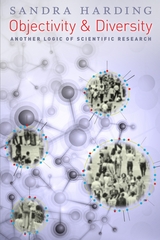
Sandra Harding is not ready to throw out objectivity quite yet. For all of its problems, she contends that objectivity is too powerful a concept simply to abandon. In Objectivity and Diversity, Harding calls for a science that is both more epistemically adequate and socially just, a science that would ask: How are the lives of the most economically and politically vulnerable groups affected by a particular piece of research? Do they have a say in whether and how the research is done? Should empirically reliable systems of indigenous knowledge count as "real science"? Ultimately, Harding argues for a shift from the ideal of a neutral, disinterested science to one that prizes fairness and responsibility.
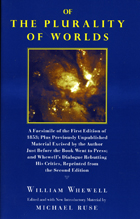
The publication of Plurality in 1853 ignited a bitter Victorian debate on science and religion. This book reprints the first edition in facsimile, together with a vigorous response to his critics that Whewell added later and new introductory and bibliographic material by noted Darwin scholar Michael Ruse. This edition also includes 84 typeset pages—never before published—that Whewell cut from the original book at the last moment. Showing clearly the theological underpinnings of Whewell's thinking, these chapters also reveal the difficulties facing any Victorian who tried to reconcile traditional Christian thought with the findings of modern science.
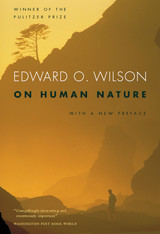
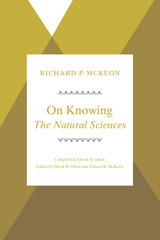
In his lectures, McKeon outlines the entire history of Western thinking on the sciences. Treating the central concepts of motion, space, time, and cause, he traces modern intellectual debates back to the ancient Greeks, notably Plato, Aristotle, Democritus, and the Sophists. As he brings the story of Western science up to the twentieth century, he uses his fabled semantic schema (reproduced here for the first time) to uncover new ideas and observations about cosmology, mechanics, dynamics, and other aspects of physical science.
Illustrating the broad historical sweep of the lectures are a series of discussions which give detail to the course's intellectual framework. These discussions of Plato, Aristotle, Galileo, Newton, and Maxwell are perhaps the first published rendition of a philosopher in literal dialogue with his students. Led by McKeon's pointed questioning, the discussions reveal the difficulties and possibilities of learning to engage in serious intellectual communication.

Gottfried Wilhelm Leibniz (1646-1716) possessed one of history's great minds. The German philosopher, mathematician, and logician invented (independently of Sir Isaac Newton) calculus. His metaphysics bequeathed a set of problems and approaches that drove the course of Western philosophy, from Kant's eighteenth century until the present day.
For over fifty years, the study of Leibniz has been a consistent passion for distinguished philosopher Nicholas Rescher. On Leibniz offers eleven of his essays, written with signature clarity, exploring the aspects of Leibniz's work and life that still resonate in the discipline of philosophy.
Rescher's essays are snapshots of Leibniz, lucidly drawn case studies that explain the fundamentals of his ontology: the theory of possible worlds, the world's contingency, space-time frameworks, and intermonadic relationships.
Several illuminating pieces reveal Leibniz as a substantial contributor to theories of knowledge. Discussions of his epistemology and methodology, its relationship to John Maynard Keynes and Talmudic scholarship, broaden the traditional view of Leibniz as a uniquely metaphysical thinker.
Rescher also explores, in four absorbing biographical essays, Leibniz's scholarly development and professional career in historical context. As a "philosopher courtier" to the Hanoverian court, Leibniz was associated with the leading intellectuals and politicians of his era, including Spinoza, Huygens, Newton, Queen Sophie Charlotte, and Czar Peter the Great.
A concluding essay holds up Leibniz's mode of philosophy as a role model for today's scholars. Rescher argues that many current problems can be effectively addressed with principles of process philosophy along lines inspired by Leibniz's monadology. On Leibniz is essential reading for students of Leibniz and Rescher alike.
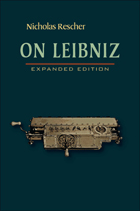
On Leibniz examines many aspects of Leibniz’s work and life. This expanded edition adds new chapters that explore Leibniz’s revolutionary deciphering machine; his theoretical interest in cryptography and its ties to algebra; his thoughts on eternal recurrence theory; his rebuttal of the thesis of improvability in the world and cosmos; and an overview of American scholarship on Leibniz.
Other chapters reveal Leibniz as a substantial contributor to theories of knowledge. Discussions of his epistemology and methodology, its relationship to John Maynard Keynes and Talmudic scholarship, broaden the traditional view of Leibniz. Rescher also views Leibniz’s scholarly development and professional career in historical context. As a “philosopher courtier” to the Hanoverian court, Leibniz was associated with the leading intellectuals and politicians of his era, including Spinoza, Huygens, Newton, Queen Sophie Charlotte, and Tsar Peter the Great.
Rescher extrapolates the fundamentals of Leibniz’s ontology: the theory of possible worlds, the world’s contingency, space-time frameworks, and intermonadic relationships. In conclusion, Rescher positions Leibniz as a philosophical role model for today’s scholars. He argues that many current problems can be effectively addressed with principles of process philosophy inspired by Leibniz’s system of monadology.

An ethnographic exploration of technoscientific immortality
Immortality has long been considered the domain of religion. But immortality projects have gained increasing legitimacy and power in the world of science and technology. With recent rapid advances in biology, nanotechnology, and artificial intelligence, secular immortalists hope for and work toward a future without death.
On Not Dying is an anthropological, historical, and philosophical exploration of immortality as a secular and scientific category. Based on an ethnography of immortalist communities—those who believe humans can extend their personal existence indefinitely through technological means—and an examination of other institutions involved at the end of life, Abou Farman argues that secular immortalism is an important site to explore the tensions inherent in secularism: how to accept death but extend life; knowing the future is open but your future is finite; that life has meaning but the universe is meaningless. As secularism denies a soul, an afterlife, and a cosmic purpose, conflicts arise around the relationship of mind and body, individual finitude and the infinity of time and the cosmos, and the purpose of life. Immortalism today, Farman argues, is shaped by these historical and culturally situated tensions. Immortalist projects go beyond extending life, confronting dualism and cosmic alienation by imagining (and producing) informatic selves separate from the biological body but connected to a cosmic unfolding.
On Not Dying interrogates the social implications of technoscientific immortalism and raises important political questions. Whose life will be extended? Will these technologies be available to all, or will they reproduce racial and geopolitical hierarchies? As human life on earth is threatened in the Anthropocene, why should life be extended, and what will that prolonged existence look like?
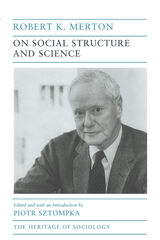
This definitive compilation encompasses the breadth and brilliance of his works, from the earliest to the most recent. Merton's foundational writings on social structure and process, on the sociology of science and knowledge, and on the discipline and trajectory of sociology itself are all powerfully represented, as are his autobiographical insights in a fascinating coda. Anchored by Piotr Sztompka's contextualizing introduction, Merton's vast oeuvre emerges as a dynamic and profoundly coherent system of thought, a constant source of vitality and renewal for present and future sociology.
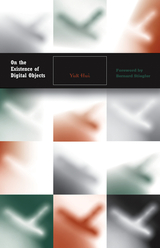
Digital objects, in their simplest form, are data. They are also a new kind of industrial object that pervades every aspect of our life today—as online videos, images, text files, e-mails, blog posts, Facebook events.Yet, despite their ubiquity, the nature of digital objects remains unclear.
On the Existence of Digital Objects conducts a philosophical examination of digital objects and their organizing schema by creating a dialogue between Martin Heidegger and Gilbert Simondon, which Yuk Hui contextualizes within the history of computing. How can digital objects be understood according to individualization and individuation? Hui pursues this question through the history of ontology and the study of markup languages and Web ontologies; he investigates the existential structure of digital objects within their systems and milieux. With this relational approach toward digital objects and technical systems, the book addresses alienation, described by Simondon as the consequence of mistakenly viewing technics in opposition to culture.
Interdisciplinary in philosophical and technical insights, with close readings of Husserl, Heidegger, and Simondon as well as the history of computing and the Web, Hui’s work develops an original, productive way of thinking about the data and metadata that increasingly define our world.
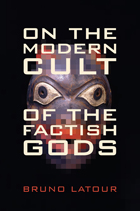
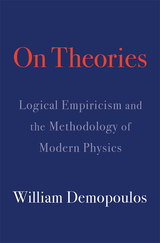
A renowned philosopher’s final work, illuminating how the logical empiricist tradition has failed to appreciate the role of actual experiments in forming its philosophy of science.
The logical empiricist treatment of physics dominated twentieth-century philosophy of science. But the logical empiricist tradition, for all it accomplished, does not do justice to the way in which empirical evidence functions in modern physics.
In his final work, the late philosopher of science William Demopoulos contends that philosophers have failed to provide an adequate epistemology of science because they have failed to appreciate the tightly woven character of theory and evidence. As a consequence, theory comes apart from evidence. This trouble is nowhere more evident than in theorizing about particle and quantum physics. Arguing that we must consider actual experiments as they have unfolded across history, Demopoulos provides a new epistemology of theories and evidence, albeit one that stands on the shoulders of giants.
On Theories finds clarity in Isaac Newton’s suspicion of mere “hypotheses.” Newton’s methodology lies in the background of Jean Perrin’s experimental investigations of molecular reality and of the subatomic investigations of J. J. Thomson and Robert Millikan. Demopoulos extends this account to offer novel insights into the distinctive nature of quantum reality, where a logico-mathematical reconstruction of Bohrian complementarity meets John Stewart Bell’s empirical analysis of Einstein’s “local realism.” On Theories ultimately provides a new interpretation of quantum probabilities as themselves objectively representing empirical reality.
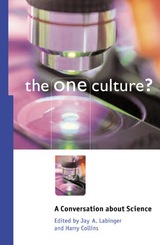
The One Culture? is organized into three parts. The first consists of position papers written by scientists and sociologists of science, which were distributed to all the participants. The second presents commentaries on these papers, drawing out and discussing their central themes and arguments. In the third section, participants respond to these critiques, offering defenses, clarifications, and modifications of their positions.
Who can legitimately speak about science? What is the proper role of scientific knowledge? How should scientists interact with the rest of society in decision making? Because science occupies such a central position in the world today, such questions are vitally important. Although there are no simple solutions, The One Culture? does show the reader exactly what is at stake in the Science Wars, and provides a valuable framework for how to go about seeking the answers we so urgently need.
Contributors include:
Constance K. Barsky, Jean Bricmont, Harry Collins, Peter Dear, Jane
Gregory, Jay A. Labinger, Michael Lynch, N. David Mermin, Steve
Miller, Trevor Pinch, Peter R. Saulson, Steven Shapin, Alan Sokal,
Steven Weinberg, Kenneth G. Wilson

Must children born with socially challenging anatomies have their bodies changed because others cannot be expected to change their minds? One of Us views conjoined twinning and other “abnormalities” from the point of view of people living with such anatomies, and considers these issues within the larger historical context of anatomical politics.
Anatomy matters, Alice Domurat Dreger tells us, because the senses we possess, the muscles we control, and the resources we require to keep our bodies alive limit and guide what we experience in any given context. Her deeply thought-provoking and compassionate work exposes the breadth and depth of that context—the extent of the social frame upon which we construct the “normal.” In doing so, the book calls into question assumptions about anatomy and normality, and transforms our understanding of how we are all intricately and inextricably joined.
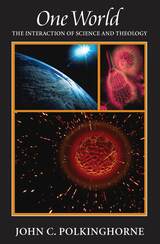


Contributors include Clark A. Elliott, Owen Gingerich, Dieter Hoffmann, Dominque Pestre, Robert W. Seidel, and V. Betty Smocovitis.

Reflecting the fecundity of contemporary scholarship, the current volume should be of extraordinary interest to historians of science, scientists, as well as anyone intrigued by the many ways in which relations between religion and science have been constructed.
Contributors include:
Peter Barker,
John Hedley Brooke,
Geoffrey Cantor,
Margaret G. Cook,
Michael J. Crowe,
Thomas Dixon,
Noah J. Efron,
Richard England,
Martin Fichman,
Maurice A. Finocchiaro,
Menachem Fish,
Bernard R. Goldstein,
Bernard Lightman,
Margaret J. Osler
F. Jamil Ragep,
Phillip R. Sloan,
Stephen Snobelen,
Jitse M. van der Meer,
Stephen J. Wykstra,

Contributors include Albert Van Helden on telescopes and authority, Jan Golinski on the demonstrative order of proof in Lavoisier's chemistry, Bruce J. Hunt on the development of electrical standards, Deborah Warner on terrestrial magnetism, Bruce Hevly on Stanford's supervoltage X-ray tube, Robert W. Smith and Jose h N. Tatarewicz on devices and black boxes, Thatcher Deane on the imperial astronomical bureau in the Ming dynasty, Thomas L. Hankins on Louis-Bertrand Castel's ocular harpsichord, Simon Schaffer on demonstration devices in Georgian mechanics, Timothy Lenoir on Helmholtz and the materialities of communication, and Robert Frank on instruments, biological techniques, and the "all-or-none" principle.
READERS
Browse our collection.
PUBLISHERS
See BiblioVault's publisher services.
STUDENT SERVICES
Files for college accessibility offices.
UChicago Accessibility Resources
home | accessibility | search | about | contact us
BiblioVault ® 2001 - 2024
The University of Chicago Press









